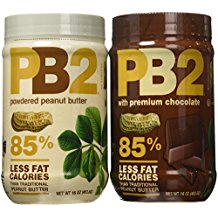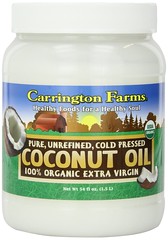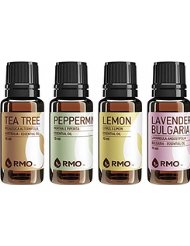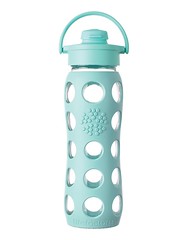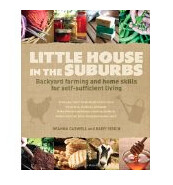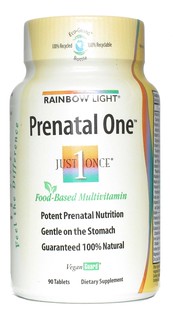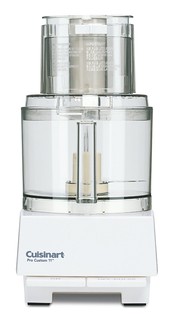

I realize with our upcoming race that there's been a lot of
marathon talk on the blog lately. I also realize many of you are newbie runners -- and I'm thrilled we've been able to help so many of you find your stride. So, today's post is for you!
Last night on
Twitter, I asked our followers the following question:
 Why ask this question now?
Why ask this question now? Well, because I dealt with this issue when I was starting out, when I first
fell in love with running. However, back then, the blog world was pretty much nonexistent. Now, I feel like everywhere I look, someone is running a 10K, half-, or full marathon. There are splits scrawled and total number of miles logged for every workout run. Elevation charts illustrated. PRs listed. (Of course, by now you realize I'm guilty of contributing to the problem, too.)
NOTE: All these measurements and public displays of confidence are most typically out of intense enthusiasm. Love for running. Love for achievement and personal growth. And that's fantastic. Don't get me wrong. It's crazy inspiring. But if I put myself back into my shoes as a newbie runner, I can see how it's also super intimidating!

When I started running as a freshman in college, I would leaf through the pages of
Runner's World during my lunch break (I worked at the campus library. There were lots of back-copies around).
RW has a TON of fantastic advice, but -- at least 8 years ago --
I felt it was more targeted toward "real" runners.
Step back a moment. What's this "real" runners crap? Let me clarify: That was
my opinion/feeling at the time. It was a title I didn't think accurately described me or my sloppy slogging around the neighborhood every other night (or so). (I've since learned that a
"real" runner is ANY runner, so long as that person is devoting himself or herself to the sport.)
Anyway, I'd go to 5K races or group training runs and hear other runners talking about how the race was just a warm-up for their "real" run later in the day. Or listen to exactly how many fall marathons they had penciled into their calendars. I'd secretly soak in their tales of 10, 15, 20 mile training runs that put my 5 milers to shame.
Oh, the humanity!
 Part of it all was a good pressure.
Part of it all was a good pressure. A much-needed motivation to run longer and harder (for example, after completing some 5Ks, I extended my training to the 10K distance). I took the stress and made it healthy stimulus. I gradually added a mile, then two to my weekly long runs. I started visiting the nearby high school track to do a bit of speed work. I started doing more races. Running with friends. I accomplished new goals. And I felt great.
But you've heard about all of that before. And that's not what I want to write about today.
 Part of it wasn't so great.
Part of it wasn't so great. Not. At. All. That's where I'd like to shift the focus.
- Like the times I ran through the pain of shin splints because I thought I needed to get more miles into my week.
- Or when I'd be at the gym in college and crank up my pace to match the treadmill of the girls around me.
- Or that one time I showed up the morning of a local half marathon having only run a single run over 1 hour and 20 minutes in my life.
Yeah. That same girl now preaches conservative approaches to training. A true case of
"do as I say, not as I do."
One important reason to heed my advice?
Overuse injuries crop up due to pressure (and, admittedly, enthusiasm). A few too-much-too-soon injuries include shin splints, runner's knee, stress fractures, and iliotibial band friction (ITB) syndrome. (To read more about these injuries, check out this article on About.com:
10 Common Running Mistakes to Avoid.) For me, I developed a nasty case of tendinitis during that first half marathon which kept me from running for over a month.
I can't even count the number of times I yelled (out loud and inside my head) at myself for letting my desire to run a long race -- with motivations that were at least half outside my own goals -- get the best of me. I keep my hefty medical supply store boot around as a reminder.

After that particular incident, though, I have tried my best to not let the pressure get to me. It was surely a wake-up call. I learned (and, really, always truly knew) if I didn't take care of myself, my body --
I may not be able to run at all. I may never reach those ultimate goals. Not in the now. Not in the ever. So, if you've got pressure plaguing you (from friends, magazines, blogs, yourself, etc.), there are some things you can do . . .
 1.) Resist the comparison trap.
1.) Resist the comparison trap. Oh, goodness this one's hard. By nature, we humans compare ourselves to one another. Sports are competitive, even for recreational athletes. However, one of my favorite parts to running that I've truly embraced in recent years is the emphasis on the PERSONAL achievement. Most of us don't win races. But if we train hard, we can beat our previous records. Or if speed isn't the thing, there's usually progress that can be measured in one way or another.
At your next race (or during your next training run), think of one thing you'd like to improve with your running. Something that can't be measured in race times or other numbers is best. Maybe it's running without stopping for two miles. Climbing a hill that's always scared you. Or just FEELING strong. That's something you can't stack up against your competitors.
It's never easy, but think of all the things you can do with your running that don't involve a gold medal or photo in the local paper. You can better your health and extend your life. You can lose weight and tone your muscles. Best yet: You can inspire others around you to live healthy lifestyles. And -- hell -- people in the back of the pack usually have way more fun at races anyway!
 2.) Do your own thing.
2.) Do your own thing. It's great to have goals, but where you and I are in our training is totally different. And where you and another reader are is likely even more different. Now, this may be a weak analogy (because I'm not great at coming up with them), but it's like I'm a senior in high school and I want to go to college. And person A is a sophomore and person B is a freshman. They also want to go to college. BADLY. It's all they hear about. It's all they can freaking THINK about.
So, I've already been in person A and person B's shoes. Taken all the classes, tests, and other requirements. It's been a LONG road. I succeed, graduate, and write home about my new and wonderful life. Person A and B are excited at my journey. Maybe even a little jealous. They decide they want to skip and take the tests to advance and get to college sooner. (Because in my analogy world, there's a magical test that allows them to do so.) Person A fails the tests and is upset. Person B passes. And goes to college.
They both studied, tried, but had vastly different outcomes.
Alright. Again. weak. BUT substitute the marathon for college in there . . . and training years for grade levels. I think you get the point. We're all different with different abilities and strengths.
We've all been running for different periods of time. Now think of it this way: If person A and B did skip ahead to college from their underclassman status, they'd miss out on so much. Football games. The prom. Senior week. All the stuff that would make them whole as they grow. I hope this is making sense.
We're all on our own fitness journeys. Only you know exactly where you are with yours. But along your path, you need to do your own thing. Take time to enjoy the unique stuff going on exactly where YOU are with yours.
 3.) Surround yourself with support.
3.) Surround yourself with support. Though competitive friends and/or significant others can sometimes push us in the right direction, they can also be the biggest sources of pressure. Sometimes without even realizing it! Stephen's speed is sheer insanity to me. When he runs with me (maybe once a week), I almost always get very upset. He doesn't mean to, but he always speeds up. Before I know it, I'm panting and feeling awful. For a long time, I let this get to me -- our differences in speed. But now, I use it as a tool.
I'll run with Stephen on my speed day. If he gets too fast, I'll tell him to slow down.
I was open with him about how I feel when he runs a shoulder ahead of me -- and he was surprised because he didn't realize he was doing it. Now, he's incredibly supportive and runs my speed, with a little kick to get me going. He told me once that he was so happy that I told him how I felt.
Whether or not the people in your life are athletic/runners/etc., you need to create a network of people who encourage YOUR goals and YOUR goals alone. (Sure, you can share goals -- but only if that's OK with you. Only if you're open about it.) For all others: I think we all have a friend (or two) who is constantly trying to one-up us. It's the worst! As my mom always taught me, it usually comes from some kind of deep-seeded insecurity. And we're all a little insecure. Instead of letting these people get to you, think of yourself first. Don't get caught up in someone else's drama.
 4.) Listen to your body.
4.) Listen to your body. How many times have I written this on the blog? Many is right! But it's always true. If something hurts. You likely shouldn't just run through the pain. Evaluate your situation. If the pain is something that happened acutely, like a rolled ankle, you should definitely get it checked by a doctor. If it's more a nagging pain that has increased with time, with each run -- back off a bit. Look at your training and what you've been up to. Usually adding speed, distance, or other intensity is to blame. With a couple days of lighter activity and a little backing off, pain should get better.
If not -- again -- consult a
trained medical professional. (Though, we runners often think all the reading we do about our bodies/aches and pains can suffice for a medical degree. It's not at all the same thing. Sorry!)
Listening to your body is also about taking care of yourself before problems occur, too. In the example with my first half marathon, I should have NEVER signed up and completed a race I wasn't ready for. One I hadn't trained for. I knew in my heart that I wasn't ready, but I let my desire to finish the distance cloud my judgment. I paid dearly. Though I am relatively injury prone, don't think you're immune from this life lesson!

That's enough for today. I think this topic is one that we'll write more about, perhaps for a series on personal goals, personal motivations, and resisting pressure. I've also been continually inspired and captivated by the stores of self-made athletes in our
Fitspiration series.
So, if you haven't read any of them yet, now's
your chance.
Have you dealt with external pressure related to your running? Ever find yourself chasing a goal that may not be your own? How do you deal? Please, tell us your story! Just leave a comment or email us at
neverhomemaker [at] gmail [dot] com.
Like what you just read? You can subscribe to the feed of these posts or follow us on Twitter or Facebook to be the first to know what the (never home)makers are up to. And we’ll love you forever!
Read more...









